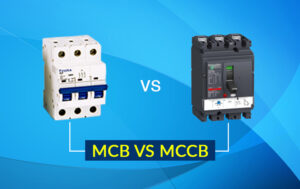
All firms- be it small scale or a colossal one- use vehicles for a number of purposes ranging from transportation of the employees to fetching raw materials and delivering finished products or services according to what the firm deals with.
Owning a Fleet
Though sometimes companies use hired vehicles for these purposes, in most cases it has been observed that organizations like to maintain their own fleet of vehicles. Having your own fleet of course has a number of advantages. Some of the most prominent ones have been enlisted below:
- As against the hired vehicles for which you will have to keep paying rent at regular intervals, owning your own fleet is a onetime investment.
- Investing in vehicles is good as they are counted as assets for a company
- Unlike the rented vehicles for which you need to make prior bookings subject to availability, your own fleet will always be at your disposal so that you can use them whenever you like it and just the way you like it.
- Usually hired cars come with the driver provided by the owners. These drivers often do not perform their duties properly. So, while you may be paying them for the entire day’s service what they do may be equivalent to just a single day of service. This causes great losses as income generation is not in tandem with the amount you may be spending on the hired vehicles.
- When you have your own fleet, you may employ strong and efficient crew of your own choice who will find themselves answerable to you if they fail to perform their duties properly.
- Owning a fleet adds to over all time and cost management as well. Businesses that have their own fleet are seen to perform better than those who hire vehicles for the same purposes.
Why does fleet inefficiency arise?
However, for some organizations owning a fleet does not turn out to be a profitable affair. Though they own a large fleet of their own, their work gets delayed due to several problems with the fleet’s time management. Or they find it difficult to rely on their fleet because there are sudden break downs. A large percent of the capital may also be getting sucked up as there is no limit on fuel consumption.
But the potent question that arises here is why is it that while some companies do so well with their own fleet, others are not able to gain as much profit from them. The answer lies in fleet management.
Fleet Protective management
Running a fleet is indeed a difficult job. It requires both expertise and high level management. Fleet Protective management or fleet management refers to all those practices that are taken up by an organization order to run their fleet in a proper and judicious way. It involves all the minute details related to the fleet, be it maintenance of the car, its permit renewal, the amount of fuel consumption or even the crew who are to run the fleet.
It is in the absence of these practices that problems arise and a fleet is unable to achieve its full efficiency.
Improper Fleet Management
Though some of the problems related to improper fleet management have already been mentioned above, these problems need to be understood in depth to come up with an effective solution.
Here are some of the major problems that organization across various industries face in managing their own fleet:
- Cost Inefficiency: The foremost reason of owning a fleet is to save money and make more profit. But sometimes this very cause is defeated and reversed when the fleet is not managed properly. This mostly comes from the fact that the fuel consumption of the vehicles is more than what it should be.
Since fuel is an expensive commodity, even a slight fluctuation can bring great changes in your balance sheet. Or in some cases more crew is employed than needed in running and managing the fleet. While you have to pay them their salary in due time, they do not add to the profit of the organization. Thus they turn into a liability for the organization and upset the cost management plans.
- Lack of maintenance: Each vehicle is unique in its need of maintenance. While some cars may need maintenance every six months, some others may not need it even in a year. For personal cars this is easy to observe and maintain, but when a whole fleet of car is in question it is difficult to keep track of which vehicle may need maintenance and at what time. Further even for the same car there may be variations depending upon how much it has been used during the period and for what purpose. When they are not maintained properly they may break down at any time and cannot be relied upon.
- Lack of efficiency and time management: Sometimes a fleet causes loss to an organization simply because there has been a lack in terms of efficiency or time management.
This happens when the fleet is not upgraded with latest technologies such as GPS which can foretell things like which will be the fastest route or where might be traffic jam.
Fleet preventive maintenance software
All these can be easily reversed with Fleet preventive maintenance software. Fleet preventive maintenance software uses the latest technology to efficiently manage your fleet and keep you updated with every detail. Be it something as small as the need to change the break oil of a certain car, the software easily detects it and sends you an alert.
Once you have fed your data into the software, you can relax as they will take care of your fleet better than you do. Even if there is a slight increase in fuel consumption they will immediately detect and even suggest you preventive measure. Be the need to maintain your vehicle or send a permit for renewal, with these software programs you have no fear of missing out on anything.
Get them today and experience the change for yourself!



